Celtic must address familiar flaws on European stage
- Published
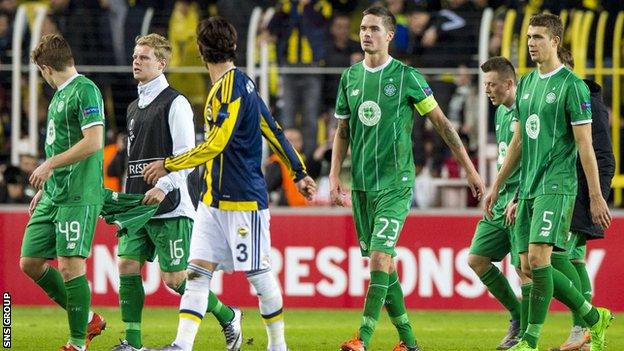
Celtic finished with three points from six games in Europa League Group A
Celtic's failings in Europe this season have already been heavily dissected, searching questions have been asked and analysis has been pored over, not least within the club itself.
Is this now a time for reflection, manager Ronny Deila was asked after the 1-1 draw at Fenerbahce, but of course that had started long ago, as one disappointing result followed another.
Yet, as each game unfolded, it appeared lessons were not being learned from one match to the next.
While defensive lapses were highlighted by the media and acknowledged by the coaching staff, they recurred - again and again.
Nonetheless, Deila has spoken continually of progress and reiterated his faith in his own methodology following Thursday's final Europa League group match in Istanbul.
It appears he will be entrusted with Celtic's European fate for another season at least.
What, then, needs to change if Celtic are to avoid missing out on the Champions League group stage for a third successive season next year?
Defensive stability
Celtic were rarely able to field the same defence in Europe and even when they could, Deila opted to make changes.
That did nothing to diminish an uncertainty that threatened to become endemic, regardless of the personnel involved.
Now, the back four that played against Fenerbahce seems to be Deila's first choice and they looked less vulnerable than in previous matches.
Mikael Lustig is a dependable figure and teenager Kieran Tierney has emerged as a terrific talent in spite of the difficult circumstances.
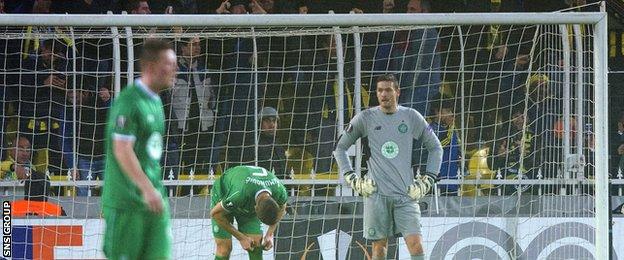
Celtic have been punished for defensive lapses in Europe
It is the central pairing of Dedryck Boyata and Jozo Simunovic that does not yet inspire confidence, and must show in the next six months that it can gel sufficiently to be entrusted with the next campaign.
Craig Gordon's status has also come into question this season and while the goalkeeper remains virtually peerless in his shot-stopping, lapses in judgement have cost Celtic dearly.
Midfield composure
With Celtic's defence bearing the brunt of much of the criticism, less has been made of the pressure it has come under as a result of carelessness elsewhere.
Even Nir Bitton, who has flourished under Deila, was guilty in Istanbul of inviting counter-attacks as a result of poor ball retention.
Celtic, of the four teams in their group, looked least at ease with the ball at their feet, with the opposition harrying and hassling.
There is no excuse for this and such weakness will be punished much more often in European competition than - as assistant manager John Collins pointed out - the domestic game, where Celtic can still get away with performing below their best.
Attacking options
The absence of Leigh Griffiths was keenly felt in Turkey and it illustrated a dearth of attacking options open to the Scottish champions.
Nadir Ciftci was well off the pace, which is quite predictable given the player has yet to play a full 90 minutes for Celtic.
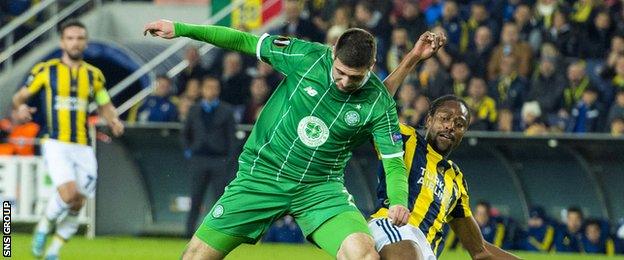
Ciftci struggled to make an impression up front in Istanbul
Deila felt it would be harsh to judge whether the former Dundee United forward has the ability to cut it at this level on the basis of his performance against Fenerbahce, but doubt certainly exists.
Carlton Cole has been brought in and may yet prove to be a valuable addition, but whether he has the quality to guide Celtic back to the Champions League group stages again has to be a matter of debate.
There is no doubt Griffiths has improved immeasurably under Deila, but he cannot be relied upon as the sole source of goals because - as became clear in the home defeat to Ajax - he will have off-days and on such days a high-quality Plan B is required.
Big questions
So Deila and chief executive Peter Lawwell have much to ponder. Perhaps the first question is: do we try to invest in the players we think we need in January to allow them to bed in rather than throw them untested into a Champions League qualifying campaign that begins in the very early stages of the new season?
Even if the answer to that in an ideal world is 'yes,' the practicalities may make that an impossibility.
Another question might be: do we waver from our policy of signing young, raw talent to bring in one or two experienced, proven Champions League-standard players?
Such a move would run contrary to the way in which the club has operated over a number of years, but could be the difference between navigating the Champions League qualifiers successfully and another year in the Europa League.
The latter scenario does not bear thinking about for Celtic, either from a financial point of view or from a supporter's perspective, particularly if it ends the way this one has.
- Published11 December 2015
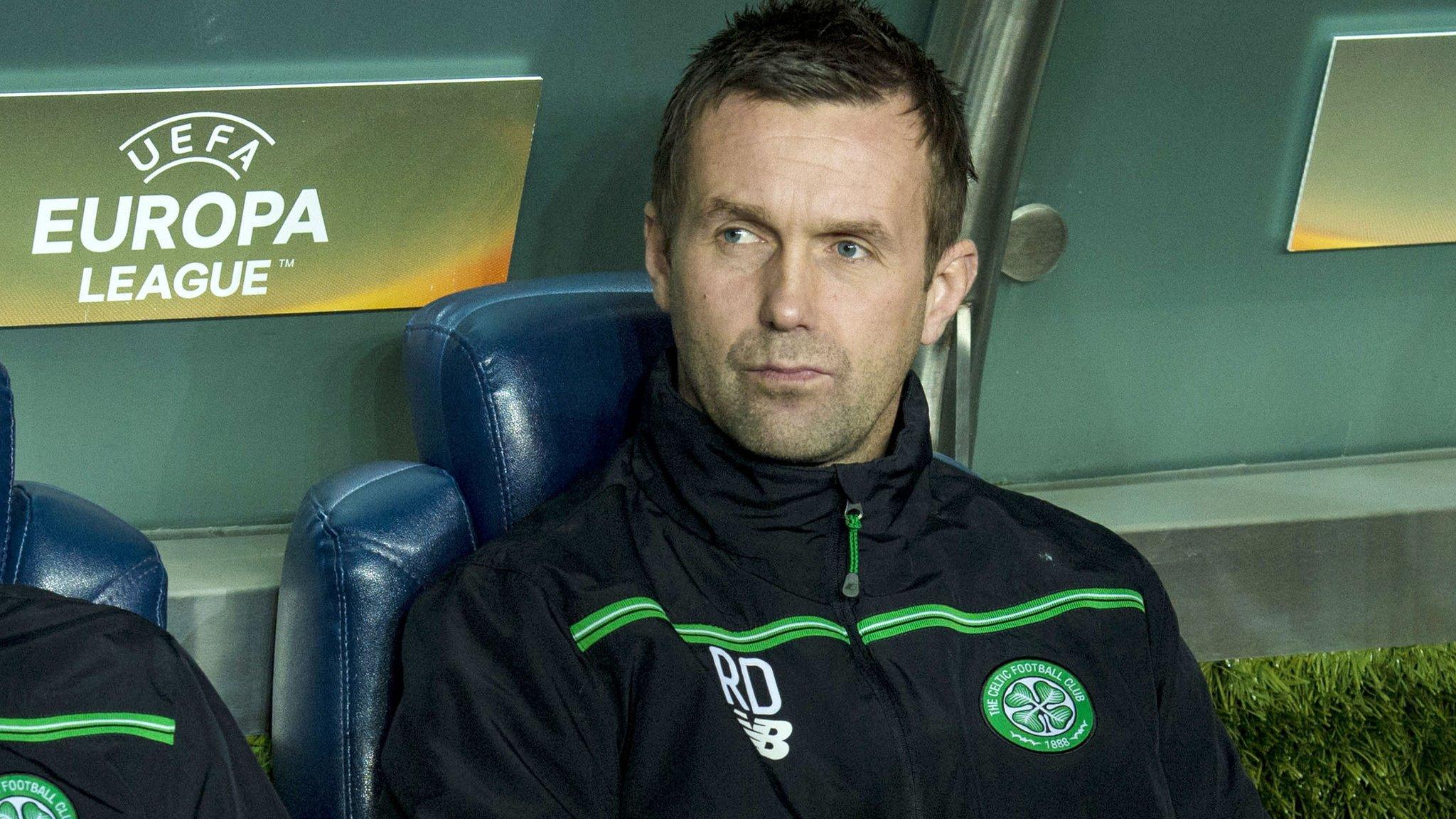
- Published10 December 2015
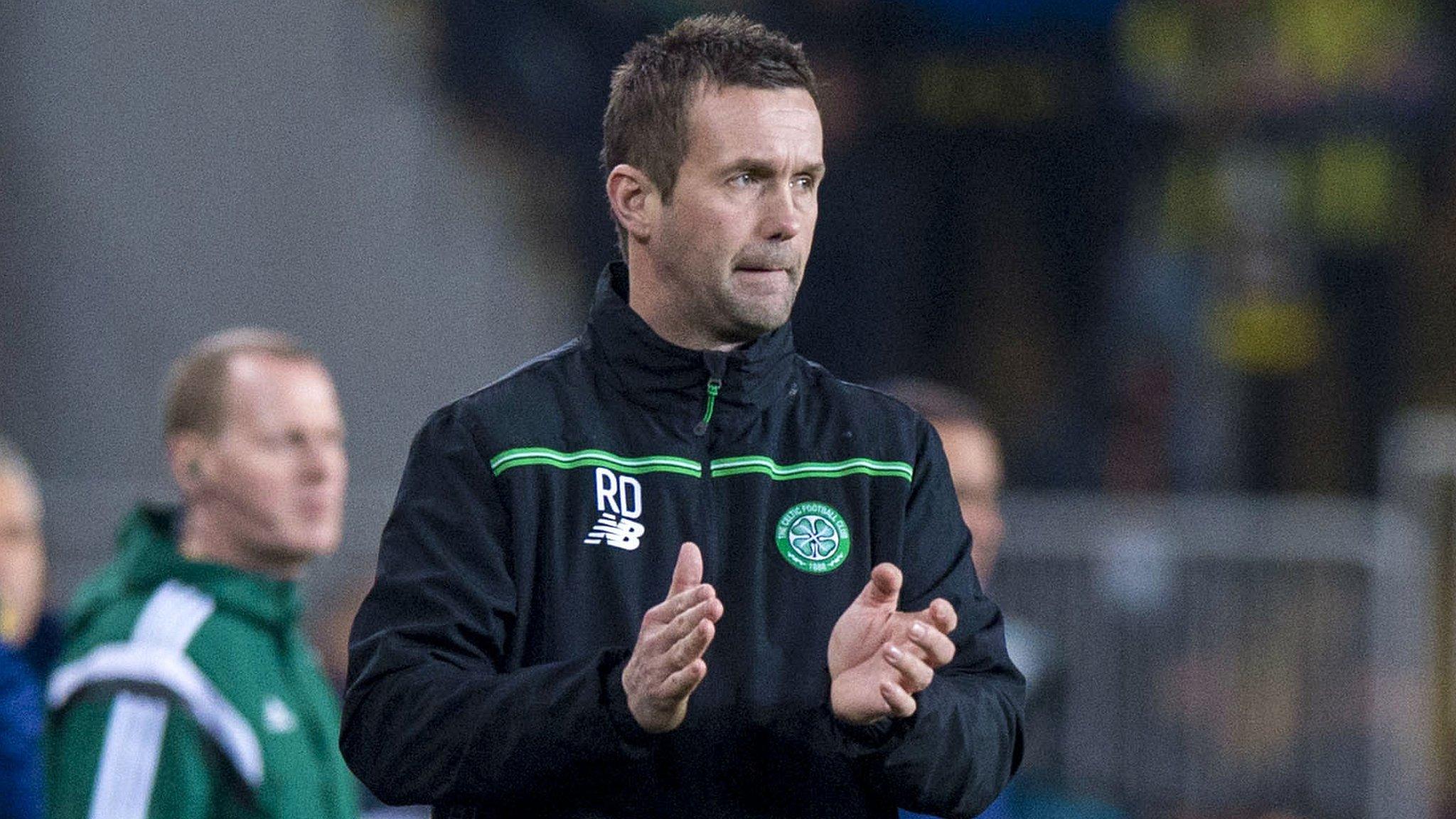
- Published10 December 2015
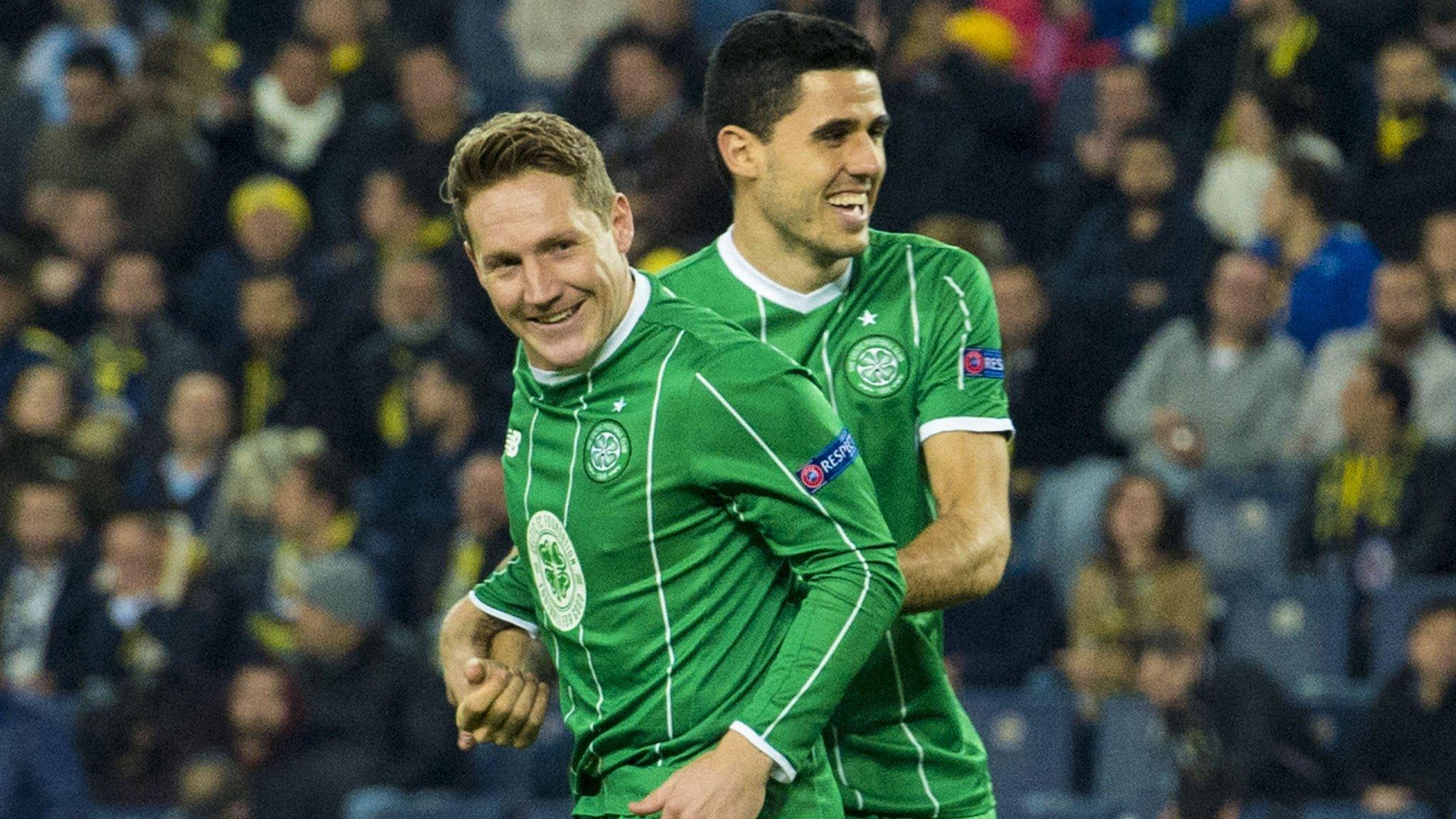
- Published20 June 2016

- Published7 June 2019
